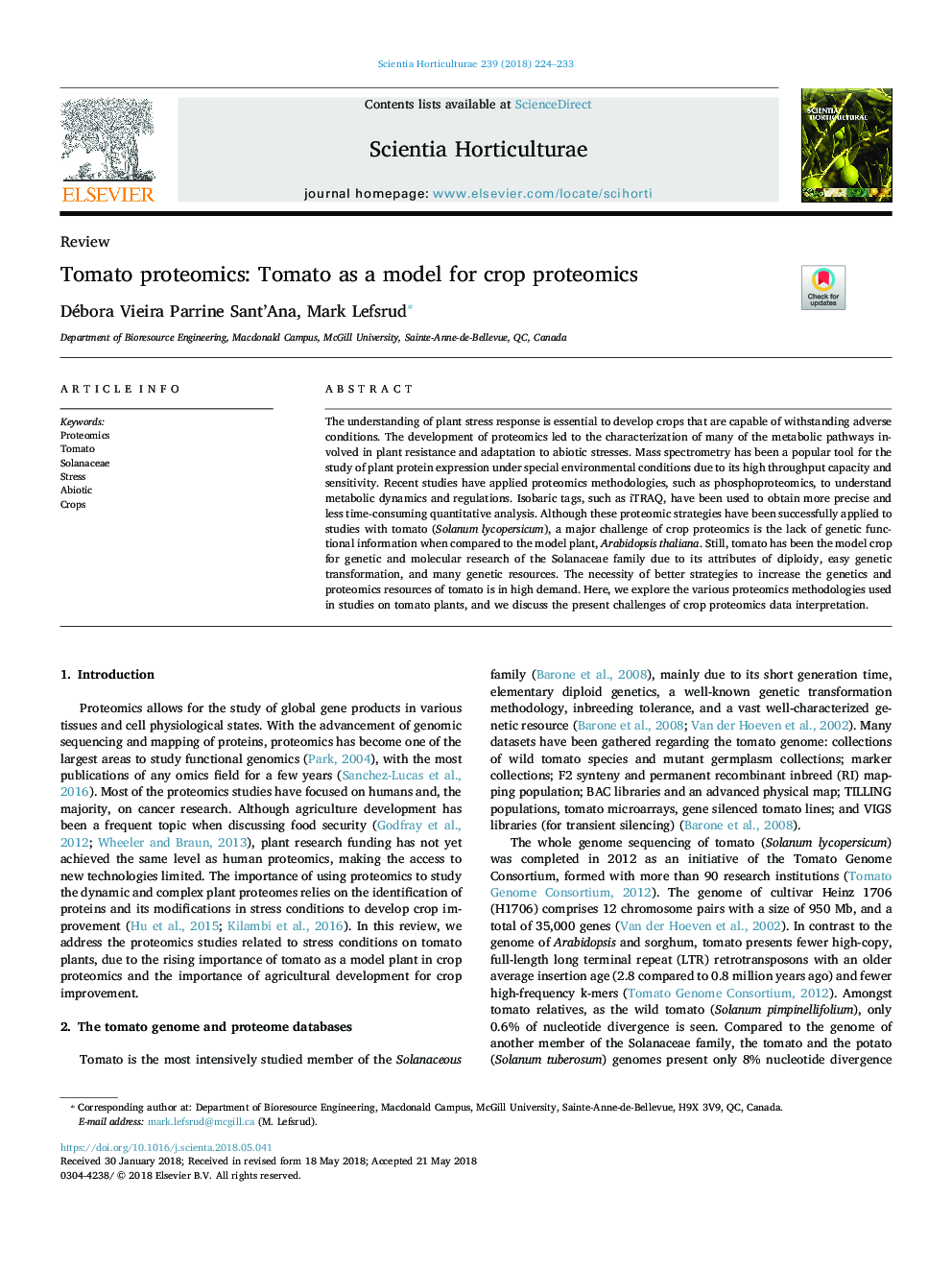| Article ID | Journal | Published Year | Pages | File Type |
|---|---|---|---|---|
| 8892474 | Scientia Horticulturae | 2018 | 10 Pages |
Abstract
The understanding of plant stress response is essential to develop crops that are capable of withstanding adverse conditions. The development of proteomics led to the characterization of many of the metabolic pathways involved in plant resistance and adaptation to abiotic stresses. Mass spectrometry has been a popular tool for the study of plant protein expression under special environmental conditions due to its high throughput capacity and sensitivity. Recent studies have applied proteomics methodologies, such as phosphoproteomics, to understand metabolic dynamics and regulations. Isobaric tags, such as iTRAQ, have been used to obtain more precise and less time-consuming quantitative analysis. Although these proteomic strategies have been successfully applied to studies with tomato (Solanum lycopersicum), a major challenge of crop proteomics is the lack of genetic functional information when compared to the model plant, Arabidopsis thaliana. Still, tomato has been the model crop for genetic and molecular research of the Solanaceae family due to its attributes of diploidy, easy genetic transformation, and many genetic resources. The necessity of better strategies to increase the genetics and proteomics resources of tomato is in high demand. Here, we explore the various proteomics methodologies used in studies on tomato plants, and we discuss the present challenges of crop proteomics data interpretation.
Related Topics
Life Sciences
Agricultural and Biological Sciences
Horticulture
Authors
Débora Vieira Parrine Sant'Ana, Mark Lefsrud,
